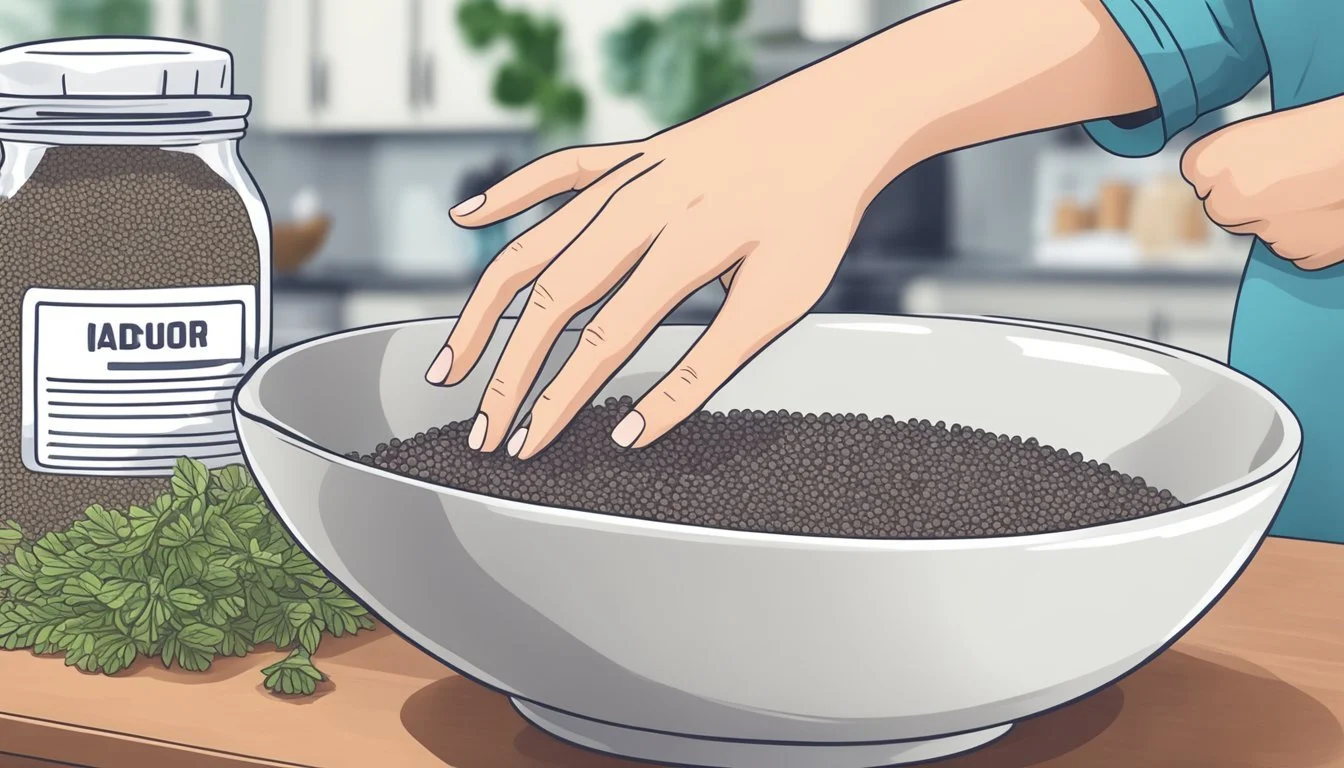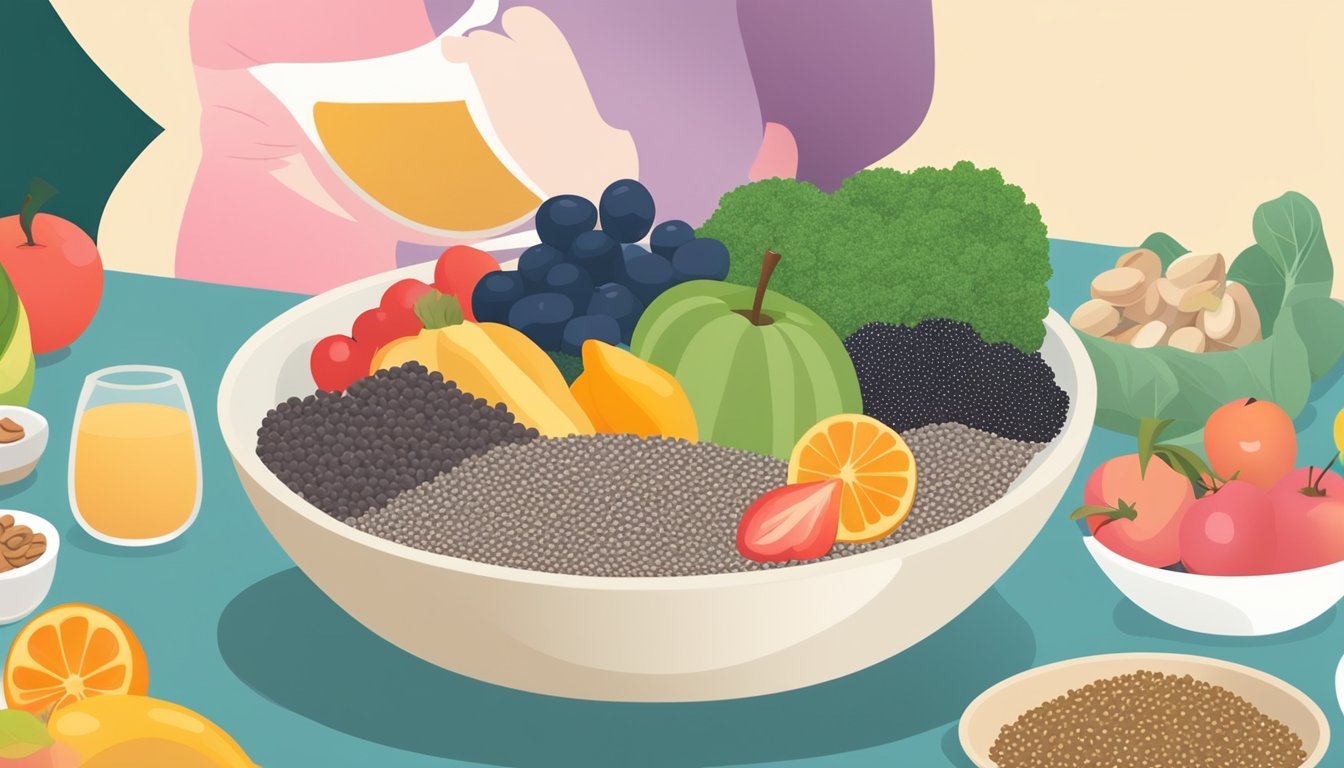Are Chia Seeds Safe to Consume During Pregnancy?
Uncovering the Facts
When it comes to maintaining a healthy diet during pregnancy, incorporating nutrient-rich foods is essential for the health of both the mother and the developing fetus. Chia seeds have gained attention for their high nutritional value and are often considered a superfood. They are an excellent source of omega-3 fatty acids, protein, fiber, and various essential minerals. These nutrients play vital roles in fetal development and maternal health, making chia seeds a potentially beneficial addition to a pregnant woman's diet.
The safety of consuming chia seeds during pregnancy is a common concern for expectant mothers. Research suggests that chia seeds are safe to eat during pregnancy and can contribute positively to prenatal nutrition. Their high fiber content can alleviate constipation, a common issue in pregnancy, while the presence of omega-3 fatty acids is crucial for the neurological and visual development of the baby. Chia seeds also contain important minerals such as iron, calcium, and magnesium, which support the growth and maintenance of maternal and fetal health throughout pregnancy.
Nutritional Profile of Chia Seeds
Chia seeds have gained recognition for their dense nutritional composition, making them a beneficial addition to the diet, particularly during pregnancy. These small seeds are an excellent source of omega-3 fatty acids, particularly alpha-linolenic acid (ALA), playing a critical role in fetal development.
Rich in protein, chia seeds provide all nine essential amino acids which are the building blocks of cells and vital for both the mother and the developing baby. The fiber content in chia seeds aids in maintaining healthy digestion and can help prevent constipation, a common concern during pregnancy.
Minerals are abundant in chia seeds. They are a significant source of:
Calcium: Essential for the development of the baby's bones and teeth.
Iron: Important for increasing the blood volume and preventing anemia.
Magnesium: Supports immune function and helps maintain muscle and nerve function.
Phosphorus: Contributes to the formation of baby's bones and teeth.
Zinc: Crucial for cellular growth and a healthy immune system.
Potassium: Vital for heart health and fluid balance.
Manganese: Supports bone development and metabolic function.
Additionally, chia seeds contain antioxidants that protect cells from damage and may support a healthy immune system.
Despite their small size, chia seeds are considered an excellent inclusion for obtaining essential nutrients during pregnancy. They can easily be incorporated into various dishes without altering the flavor, thereby enhancing the nutritional intake with minimal effort.
Health Benefits for Pregnant Women
Chia seeds, rich in essential nutrients such as omega-3 fatty acids, fiber, and a variety of vitamins and minerals, offer multiple health benefits specifically tailored for pregnant women. These benefits not only support the well-being of the mother but also contribute to the healthy development of the growing baby.
Contribution to Fetal Development
Chia seeds contain alpha-linolenic acid, a type of omega-3, which is fundamental for fetal brain development and can help form the neural pathways essential for a baby's cognitive function. They are also a good source of minerals such as calcium and phosphorus, crucial for building strong bones and teeth.
Digestive Health Support
Rich in fiber, chia seeds promote digestive health by easing constipation, a common issue in pregnancy. They ensure smooth bowel movements and can help to maintain healthy gut flora, which is beneficial for both mother and child's immune system.
Impact on Blood Sugar Levels
The glycemic regulation properties of chia seeds help in maintaining stable blood sugar levels, decreasing the risk of gestational diabetes. Incorporating chia seeds into a pregnant woman's diet can provide a slow release of energy, avoiding spikes and crashes in blood sugar that can impact energy levels.
Influence on Energy and Stamina
Chia seeds are packed with nutrients that provide sustained energy for pregnant women. Iron, found in these seeds, is a key component in combating fatigue and supporting increased energy needs during pregnancy. Their high nutritional value can contribute to overall stamina, helping to cope with the demands of pregnancy.
How to Incorporate Chia Seeds into a Pregnancy Diet
Incorporating chia seeds into a pregnancy diet can contribute valuable nutrients. Pregnant women can achieve a balanced diet with the careful integration of chia seeds into everyday meals and snacks.
Safe Consumption Practices
Moderation is key when adding chia seeds to a pregnancy diet. Pregnant women should consider eating no more than 1 ounce of chia seeds per day. Chia seeds can absorb many times their weight in water, creating a gel-like consistency that promotes satiety. However, due to their high fiber content, they should be consumed gradually to avoid gastrointestinal discomfort. Pregnant women should ensure they stay hydrated when incorporating chia seeds into their diet.
Moderation: Up to 1 ounce per day
Hydration: Increase water intake with chia seeds
Recommended Recipes for Pregnant Women
Chia seeds are versatile and can be added to many recipes. For breakfast, one might stir chia seeds into yogurt or oatmeal to start their day with a fiber-rich meal. Making chia pudding overnight by mixing the seeds with milk or a dairy-free alternative can provide a hassle-free and nutritious snack. In baked goods, chia seeds can be used as a binding agent when mixed with water, serving as a nutrient-dense egg substitute.
Protein intake is critical during pregnancy. Chia seeds blend well in smoothies and can be combined with protein-rich foods like Greek yogurt or protein powder to enhance their nutritional value. For those preferring savory options, chia seeds can be added to whole grain bread recipes or sprinkled over salads.
Breakfast:
Yogurt or oatmeal: Add 1-2 tablespoons of chia seeds.
Chia pudding: Mix chia seeds with milk or alternatives overnight.
Snacks and meals:
Baked goods: Use as an egg substitute or in bread.
Chia water: Soak seeds in water for a hydrating drink.
Salads: Sprinkle seeds raw for a nutrient boost.
Protein enhancement:
Smoothies: Include with fruits and vegetables.
Whole grains: Add to recipes for added fiber and protein.
Potential Risks and Side Effects
When considering the incorporation of chia seeds into a pregnancy diet, it's important to be aware of potential risks and side effects. Although chia seeds offer numerous health benefits, they may also pose certain risks for some individuals, such as allergic reactions, gastrointestinal issues, and medication interactions.
Managing Allergic Reactions
Allergic reactions to chia seeds, although rare, can occur. Symptoms may include hives, itching, or swelling of the lips, tongue, or throat. Individuals with a history of allergic reactions to sesame or mustard seeds may be at a higher risk and should consult with a healthcare provider before adding chia seeds to their diet.
Effects on Gastrointestinal Health
Chia seeds are high in fiber, which can affect gastrointestinal health in several ways. An increase in dietary fiber, especially suddenly, can lead to stomach discomfort, gas, and bloating. Additionally, overconsumption may result in issues like constipation or diarrhea. To minimize these effects, individuals should increase fiber intake gradually and ensure adequate hydration.
Interactions with Medications
Individuals taking medications, particularly those affecting blood pressure or blood clotting, should be cautious. Chia seeds have blood-thinning properties and can lower blood pressure, potentially amplifying the effects of certain medications. It's important to discuss with a healthcare provider before consuming chia seeds if taking medications related to blood pressure or if individuals have conditions related to inflammation or hemorrhoids.
Professional Guidance and Considerations
When incorporating chia seeds into a prenatal diet, pregnant women should consider professional guidance to ensure safety and to monitor for any potential pregnancy-related health conditions.
Consultation with Healthcare Providers
Pregnant women are advised to consult with their healthcare provider, which may include a doctor or dietitian, before adding chia seeds to their diet to ensure they are safe to consume. These professionals can offer personalized advice that considers the individual's health history, existing diet, and any medications that might interact with increased fiber intake. Moreover, healthcare providers can affirm the health benefits of chia seeds, such as their high omega-3 fatty acid content which supports fetal brain development, and their ability to contribute beneficial calories and nutrients without high sugar levels, which is particularly advantageous for managing blood sugar in the case of gestational diabetes.
Monitoring for Pregnancy-Related Conditions
Healthcare providers can also assist in monitoring for pregnancy-related conditions such as anemia or preeclampsia, where chia seeds' high iron content can support the formation of red blood cells, thus preventing low birth weight and assisting with the baby's development. Additionally, the omega-3 fatty acids, specifically DHA found in chia seeds, may reduce the risk of heart disease and help combat depression often associated with pregnancy and postpartum. Pregnant women should be mindful of the precautions associated with consuming chia seeds, such as ensuring they are taken with adequate water to aid in absorption and digestion, considering chia seeds absorb multiple times their weight in water. Because they are considered a low-risk food when it comes to allergens or contaminants, chia seeds can be a safe addition to a prenatal diet when consumed in recommended quantities and under professional supervision.




